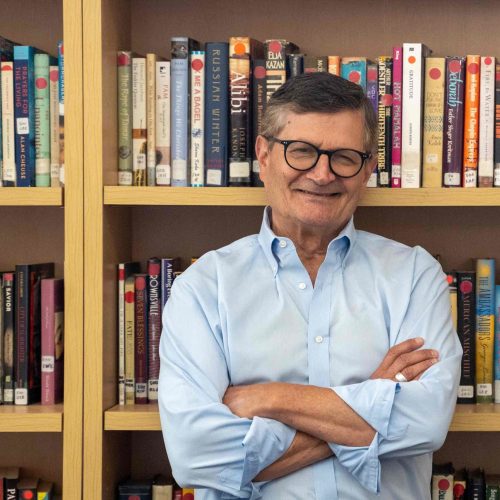It’s nearly impossible to keep up with the information flow today; staying current with articles and thought pieces and journal entries (I’m not even including old-school, real live books) is like drinking from a firehose – you can drown in what is actually a life-sustaining act.
So I was particularly glad that a recent piece published by The New Yorker didn’t fall through the cracks (it helps that my wife flagged it for me – now you know whose recommendations go to the top of my reading list). Nathan Heller’s article – “What Happens When an Elite Public School Becomes Open to All?” (March 7, 2022) was a fascinating exploration of Lowell High School, one of two public high schools in San Francisco that uses “selective admission” – i.e., the school’s admission criteria include grades and test scores. Lowell lays claim to – in my mind, a justified – outstanding reputation. I’m fortunate to know a number of Lowell graduates (truth in advertising, Deborah is one of them), and while it’s legitimate to hypothesize that most would have been successful irrespective of where they attended high school, it’s irrefutable that Lowell provided them with an excellent (and I’m especially careful using that overused ‘E’ word) educational experience.
Whether Lowell or other schools like it should reduce (or erase entirely) their reliance on demonstrable merit criteria for admissions takes into account social, economic, ethnic and other demographic phenomena. The role of the public school in the city and in the American community writ large is part of this discussion, and there are scores of serious arguments on all sides (all sides, not “both” sides, which reduces a complex conversation to a simple binary this-or-that equation).
That, however, is not the purpose of this column. The decision facing Lowell is fascinating – and important for our society’s long-term health – but I reference it only insofar as it suggests a different conversation for our specific school community. While the traditional mission of the public school in the U.S. is to meet the educational needs of every student that enters their campuses, the mission for independent schools (aka, “private” schools) is far more narrow. They may only serve students who can pay a very high tuition, or they may only take in students with a specific demographic makeup, or they may only enroll students who can demonstrate a certain GPA.
The mission of a Jewish Day School is dramatically – enthusiastically – different. If we can meet their educational and social and emotional needs – we want them. If they want in, we want them. If we can do right by them, we want them. Our commitment is to ensure that all of our students receive the instruction that’s right for them, with the appropriate level of challenge and the appropriate motivation.
Which brings me to another article, one I read as a Jerusalem Fellow in Jerusalem (hence, the name of the Fellowship) in 2001 or ’02. I don’t remember many of the details of “If We Didn’t Have the Schools We Have Today, Would We Want the Schools We Have Today?” – but the title of the piece pretty much summed up its message. If we didn’t just have the schools that already exist, what would we want in a school we were able to build from the ground floor? If we didn’t have to settle – their Science Department is great, but their Language Arts leaves a lot to be desired; or, they’re rigorous and demanding, but they seem to forget that their students are adolescents, not grad students… – how would we create a school that didn’t sacrifice one element for another? And within the context of Jewish Day Schools, how would we ensure that the General Studies didn’t overshadow the essential significance of the school’s Jewish Studies? Or the other way around?
It’s a heady, demanding – and absolutely essential – question. If we weren’t relegated to the schools we already know, what would we want in a school that’s yet to be built? Individuals, institutions – schools – need to always hold tight to these aspirational goals, never to be satisfied with what is, but always to strive for what can be.
שבת שלום – Shabbat Shalom,
Jerry

